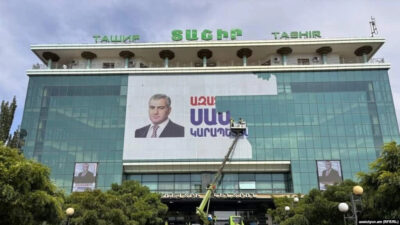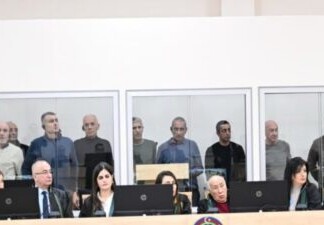By George Meneshian
Special to the Mirror-Spectator
Many argue that the international system is undergoing structural change. The weakening of traditional hegemonies, the rise of regional powers, and the resurgence of geopolitical competitions have all disrupted the strategic status quo from the Indo-Pacific to the Eastern Mediterranean. In this new context, multilateral cooperation formats are no longer optional but essential. As states confront increasingly complex threats, shifting alliances, and overlapping spheres of influence, they are seeking new groupings that combine efficiency with political coherence. One of the most promising emerging alignments is the quadrilateral involving France, Greece, Armenia, and India, a format rooted in shared democratic values, security concerns, and political objectives. What has begun as a series of bilateral and trilateral initiatives must now evolve into a strategic synergy.
The growing convergence among these four states is not coincidental. It partially arises from the need to respond to the increasingly assertive Turkey–Azerbaijan–Pakistan axis, which has matured into a strategic bloc with growing military, economic, and diplomatic coordination. This trilateral format has demonstrated its operational capacity and regional ambitions, most clearly in the aftermath of the second Nagorno Karabakh war (2020), and continues to project influence beyond its immediate geography. In this setting, the France–Greece–Armenia–India format provides a natural and necessary counterbalance, one that is already being considered at the policy level.
In March 2024, Greek Defense Minister Nikos Dendias publicly acknowledged the potential of a quadrilateral cooperation format in the defense sector involving Armenia, Greece, France, and India. His remarks are not merely speculative. They reflect a broader consensus forming among policy and scholarly circles that such a grouping is both viable and needed.
Armenia, at the heart of this potential format, is repositioning itself. Long reliant on Russian security guarantees, Yerevan has begun to reduce that dependency not only because of Moscow’s declining credibility, but also due to the urgency of modernizing its defense posture amid Azerbaijani pressure. Armenia has rapidly expanded its security cooperation with India, France, and Greece. India has become Armenia’s principal arms supplier, providing advanced artillery systems, anti-tank weapons, air defense platforms, and drone countermeasures. France has delivered armored personnel carriers and CAESAR artillery systems, while Greece has revitalized and institutionalized its long-standing bilateral military ties, through joint drills and multiple defense agreements. Plans for Greece to transfer Russian-origin air defense systems to Armenia further underscore this new trajectory. Armenia is also exploring participation in Greece’s Hellenic Center for Defense Innovation (ELKAK) and is engaging in industrial defense cooperation that would have been politically unthinkable a decade ago.








